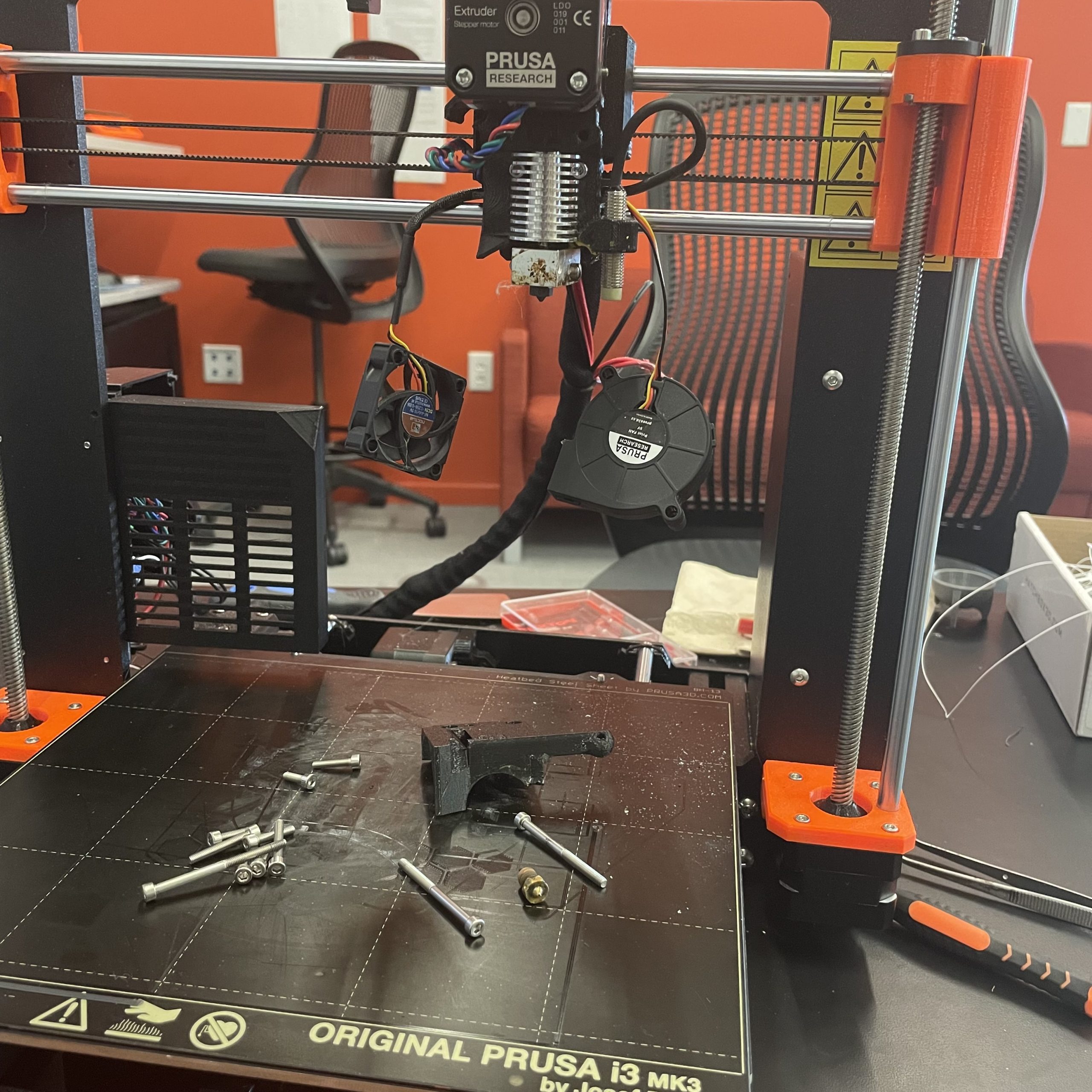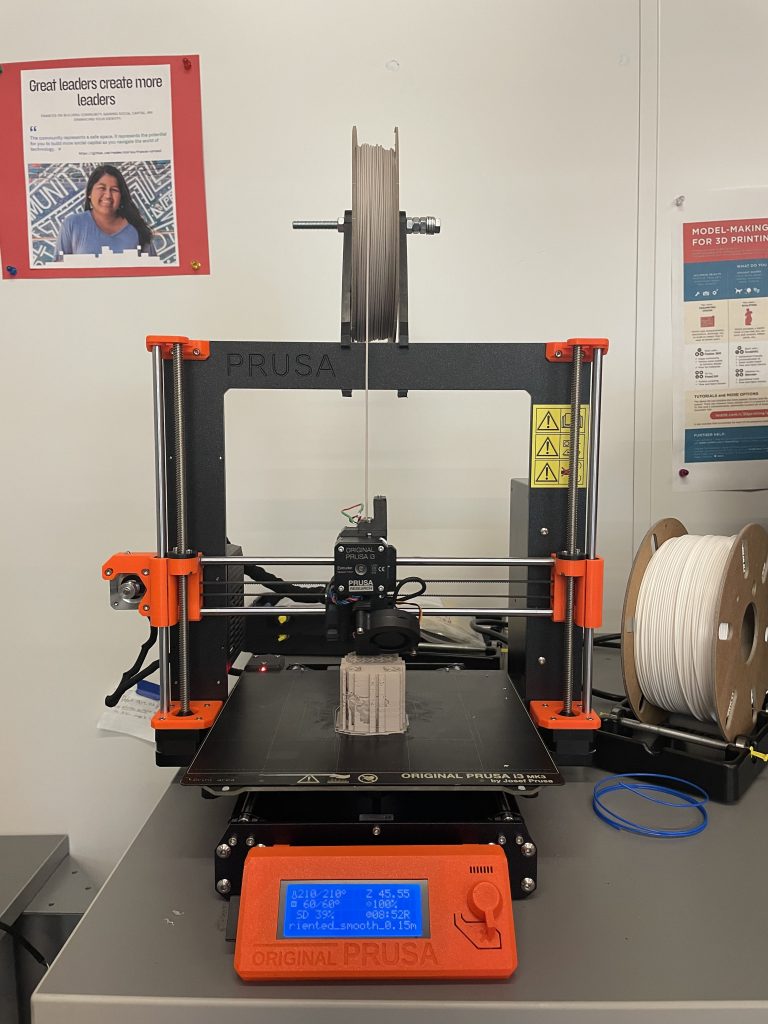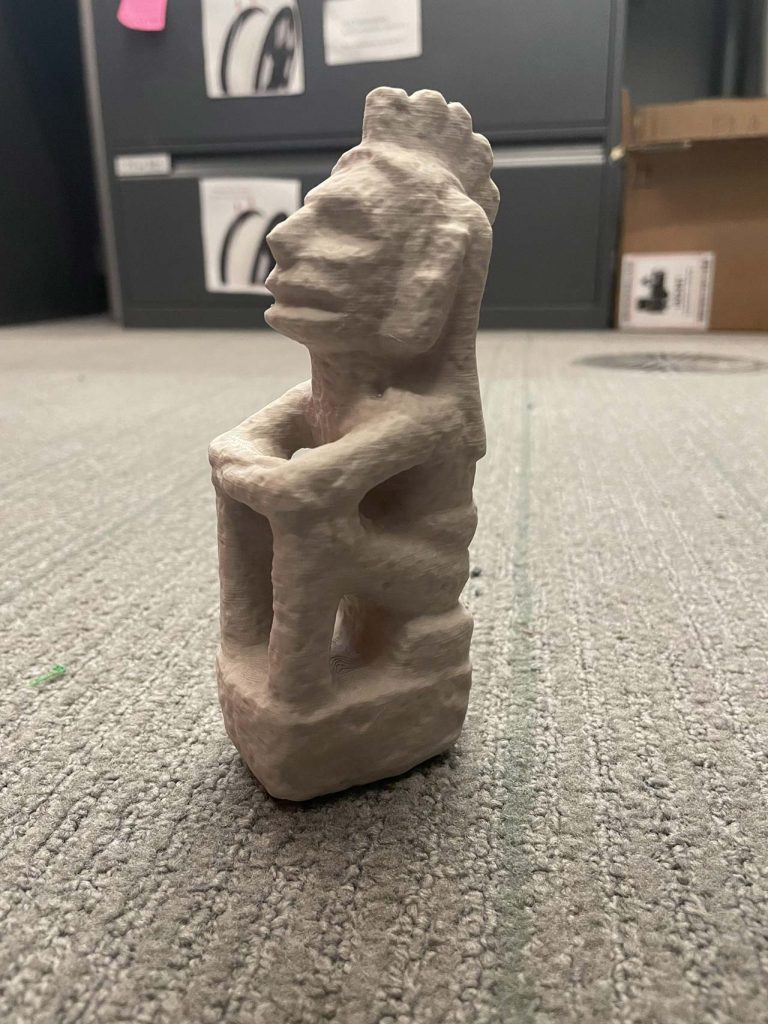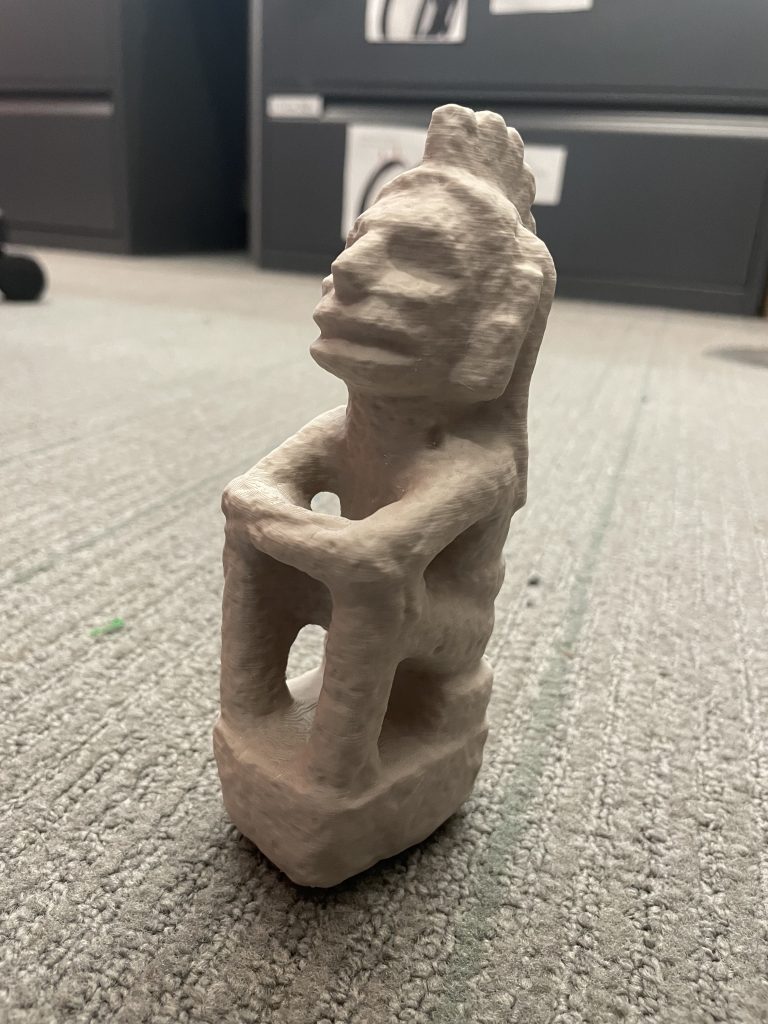This is an extension of the WCMA artist project.
At this point, all of the 3d-prints for the Williams College Museum of Art (WCMA) have been in PLA plastic filament. Creating them in plastic was relatively inexpensive, convenient (as we already had that filament on hand), and gave a good enough visual representation of what the pieces looked like.
Now that we now have access to a pottery clay-based filament the 3d-prints can now be created using the new filament type. As the pieces cannot be held by the average person creating models using stone based filament gives more accurate information on the artifacts weight and texture.
Our current machines have brass nozzles which are not suitable for the more textured pottery clay based filament. As a result, the brass nozzle needs to be removed and replaced hardened steel nozzle.
Once the hardened nozzle was installed, the printer was recalibrated to account for any thing that might have changed when it was taken apart. The seated deity was printed as an initial test of the filament because it had the least amount of problems when printing in PLA. It was printed at 0.15 mm quality with a 15% infill and supports were generated everywhere.
These are the results.




